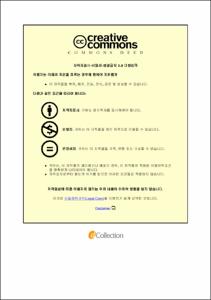동남아시아 WTO 무역분쟁 연구
- Alternative Title
- WTO Dispute Settlements of Southeast Asia: Focused on the Case of Indonesia
- Abstract
- This study analyzes the current state of WTO trade disputes in Southeast Asia, especially focusing on the disputes of Indonesia, where the use of the WTO dispute resolution procedures has increased rapidly. It will also examine the legal issues and judgments of major cases involving Indonesia, analyzing the economic and political peculiarities that have led to an upsurge in Indonesian disputes. Additionally, the study extracts implications from Indonesian disputes and suggests countermeasures to aid in the prevention of potential future conflicts.
The number of WTO disputes in Southeast Asia has been increasing since the 2009 global financial crisis. This is similar to the overall trend of global WTO disputes, indicating that the disputes in Southeast Asia are also affected by the global recession and the proliferation of trade protectionism. In particular, Indonesia has outpaced its fellow Southeast Asian countries dramatically in the number of disputes. In the last 5 years, 5 out of the 7 Southeast Asian complaints were brought by Indonesia, while 10 of the 11 cases brought against Southeast Asian countries were brought against Indonesia.
This increase in the Indonesian disputes can be attributed to Indonesia's distinct national characteristics which enact the contradictory policies of export led growth and protectionist trade. The increased export of manufactured goods emanating from the implementation of an export-oriented policy has a direct correlation to the increase in the number of cases filed with the WTO. Indonesia seeks to secure profit in their export industry by aggressively disputing the unfair trade practices of other countries. At the same time Indonesia has pursued policies to attract foreign investment, but the number of disputes has increased since 2010 due to various import regulations that were implemented in response to the economic downturn caused by the global economic crisis. Therefore, Korea should continuously monitor the ever changing Indonesian domestic laws and regulations designed to stimulate their economy. Through thoroughly understanding the related regulations, Korea can prevent damages caused by disputes and avoid unnecessary conflict in the future.
- Issued Date
- 2017
- Awarded Date
- 2017. 2
- Type
- Dissertation
- Publisher
- 부경대학교 대학원
- Affiliation
- 부경대학교 대학원
- Department
- 대학원 국제통상물류학과
- Advisor
- 나희량
- Table Of Contents
- 제 1 장 서론 1
제1절 연구배경 및 목적 1
제2절 연구내용 및 방법 6
제 2 장 문헌연구 및 WTO 분쟁현황 8
제1절 기존연구 검토 8
제2절 세계 WTO 분쟁현황 11
2.2.1 연도별 현황 11
2.2.2 주요 국가별 현황 14
제 3 장 동남아시아 WTO 분쟁 17
제1절 연도별 및 시기별 분석 17
제2절 협정별 분석 19
제3절 국가별 분석 21
제4절 제소별 분석 24
제5절 피소별 분석 26
제 4 장 인도네시아 WTO 분쟁 30
제1절 제소사례 30
4.1.1 인도네시아 제소현황 및 특징 30
4.1.2 주요 분쟁사례 분석 34
4.1.3 산업 및 통상정책과의 관련성 48
제2절 피소사례 55
4.2.1 인도네시아 피소현황 및 특징 55
4.2.2 주요 분쟁사례 분석 58
4.2.3 산업 및 통상정책과의 관련성 65
제 5 장 결론 74
참고문헌 78
- Degree
- Master
- Appears in Collections:
- 대학원 > 국제통상물류학과-FTA비즈니스전공
- Files in This Item:
-
-
Download
 동남아시아 WTO 무역분쟁 연구.pdf
기타 데이터 / 1.01 MB / Adobe PDF
동남아시아 WTO 무역분쟁 연구.pdf
기타 데이터 / 1.01 MB / Adobe PDF
-
Items in Repository are protected by copyright, with all rights reserved, unless otherwise indicated.